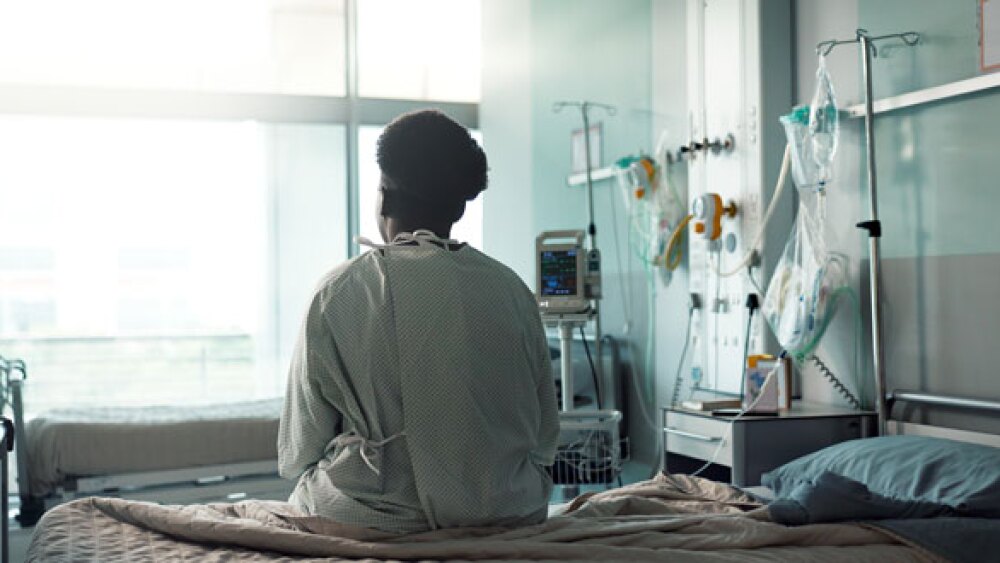Federal funding and legislation spotlight women’s health opportunities and challenges.
The focus on prioritizing women’s health has slowly been increasing throughout the life sciences and healthcare industries in recent years. Still, women’s health is underfunded, with only 2% of the $41.2 billion funding granted by venture capitalists in 2023, according to a Deloitte analysis of PitchBook data.
Last month, President Biden signed an Executive Order on Advancing Women’s Health Research and Innovation. This is a huge step forward to jumpstart funding and incentivizing women’s health research, not only in the United States, but on a global scale. This monumental step highlights the significant opportunities and challenges presented in women’s health.
Federal Funding
Through the White House Initiative on Women’s Research, launched in 2023, the Biden Administration has already committed over $300 million funding—$100 million through the Advanced Research Projects Agency for Health’s Sprint for Women’s Health initiative plus the National Institutes of Health’s pledge of $200 million dedicated to close gaps in women’s health research starting in FY2025. The new executive order expands the commitment and spotlight on women’s health by calling on Congress to commit $12 billion to the funding of new women’s health research across the federal agencies over a period of years, which remains unspecified at the time of this article’s publication.
Kathyrn G. Schubert, president and CEO of the Society for Women’s Health Research, a non-profit organization focused on increasing women’s health funding, spoke with BioSpace after attending the executive order’s signing. “It’s the first time that this topic has been lifted up by the White House and First Lady, and we’re looking forward to working with them and advocating for the Initiative itself.”
Sanskriti Thakur, chief executive officer at venture firm Tower Capital Group, shares Schubert’s excitement but cautions that the executive order is a promise. “The execution is lifesaving. It depends on public/private partnerships to see it through and bring the funding to women.”
While the funding needs to go through the budget and appropriations process on Capitol Hill, the industry is already responding with both Schubert and Thakur noting increased interest in funding women’s health research. Schubert highlights that the execution of this order will be a monumental task but is one that the industry needs. “We’re ready for this challenge and committed to getting as much funding for women’s health research as possible.”
Re-defining Women’s Health
What is women’s health? Traditionally, women’s health has been confined to reproductive health, gynecological health and predominantly female conditions. This definition is troubling to Chia Chia Sun, chief commercial officer at Fab Biopharma, a company focused on developing biologics for autoimmune diseases primarily targeting women. “By limiting women’s health to reproductive health, we are not capturing data on the decades of health prior to and after a woman’s reproductive years,” she told BioSpace.
Sun is not alone in her concerns. The industry is slowly moving toward adopting a definition beyond reproductive health which includes general conditions that affect women differently, disproportionately or have historically had a bias associated in the delivery of care to women.
From a clinical trial perspective, Todd Rudo, chief medical officer at Clario, a clinical trial data management technology solutions provider, agrees that a definition confined to reproductive health is limiting and ignores diseases that affect both men and women. He stresses the importance of screening, diagnosis and early intervention for diseases like lupus, which disproportionally affects black females. “Not only are those patients more likely to develop lupus at an earlier age, but they’re also at a higher risk for the most severe complications of lupus, including neurologic disease and kidney failure.”
The trend within the industry is shifting towards recognizing that women’s health is the foundation of healthy societies. “It is the basis of generational health, those genetic, epigenetic and environmental factors that impact future societies beyond the fourth generations,” Thakur explained. Because women are often caretakers in both the home and community, understanding women’s health holistically leads to healthier societies.
Legislation & Data Gaps
The industry widely recognizes the data gaps caused by the historical exclusion of women in clinical trials until the 1990s. Additionally, the healthcare system and clinical trials are not designed for women. Rudo points out that “in nearly 30% of pivotal studies from 2007-2021 supporting FDA submission for approval, women were underrepresented by at least 20%.”
From Thakur’s perspective, not accurately capturing 51% of the population drastically undermines the impact on our global health and productivity and lacks vital information on our evolution. “Beyond the lack of therapeutic data, the lack of data on this area prevents us from efficient global health management, pediatric care, disaster response and much more,” she said.
While both the healthcare and life sciences industries are actively working to include more women, continual legislation in the U.S. revolving around abortion poses significant challenges to these efforts. Shawana Moore, past president of the National Association of Nurse Practitioners in Women’s Health and member of the Advisory Council for Healthy Women, stated that conversations among healthcare providers and women have evolved since the Supreme Court’s June 2022 ruling on Dobbs v. Jackson Women’s Health Organization—the decision that overturned Roe v. Wade—and the addition of two abortion-related cases to the Supreme Court’s docket for 2024: FDA v. Alliance for Hippocratic Medicine (oral arguments heard on March 26, 2024) and Idaho v. U.S. (oral arguments scheduled for April 24, 2024). “Decisions made at this level influence women’s trust in healthcare systems, which will ultimately impact data collection and analysis in the field of women’s health,” Moore said.
With women facing the possibility of criminalization, data privacy is in the forefront of women’s minds. Other judicial activities, such as state attorneys requesting medical records, further compound the ability to gather complete data from women. Thakur worries that “fear [of prosecution] will penetrate [the female patient population] and reduce the accuracy of reported or collected health information.”
From a clinical research perspective, Elisa Cascade, chief product officer of clinical support and tech provider Advarra, does not believe the Supreme Court rulings will prevent women participating in clinical trials because patients seek trials after exhausting all other treatment options. She does echo reservations about data quality, particularly medical histories. “While the Supreme Court and state-level rulings may not change willingness to participate, there could be an impact on the completeness of data reported by women, particularly as it pertains to questions related to medical history, due to fear of retribution.”
The ability to collect accurate data also depends on the ability to receive quality care. Schubert is monitoring the consequences of Dobbs v. Jackson. “We already have issues surrounding data quality, data standardization and reporting, and we’re watching closely to see how much worse these issues will be,” she said. Sun points to the choices healthcare providers are facing as an indirect way women may have a harder time accessing healthcare. “With the Dobbs ruling, healthcare providers are also facing criminalization. The fear is such that physicians with reproductive or maternal health specialties are leaving states with restrictive abortion laws.”
The next generation of physicians has reported Dobbs v. Jackson as an influencer of where they intended to practice. In a study conducted by Emory University School of Medicine, 76.9% of medical students applying for residency programs between August and October 2022 reported that abortion access is likely or very likely to influence their residency decisions and 72.2% where they plan to start a family. Moore said, “While there is a concern about the possibility of certain diagnoses being missed, there should be a greater emphasis on improving healthcare practices to ensure equitable access to accurate diagnoses and treatments for all individuals.”
The industry is realizing the importance of women’s health and the necessity of these data. However, differences in access to care as well as women’s trust and confidence in the healthcare system may prove to be hard challenges to overcome when attempting to acquire complete data. This may lead to more clinical trials taking place in other countries prior to or instead of drug development occurring in the U.S.
The unequal political situation in the country does, however, present a unique opportunity to study generational health outcomes, Cascade suggested. “Specifically, researchers will be able to examine whether differences exist in maternal, family, and child health, education, income, and other outcomes based on state of residence.”
Key stakeholders—investors, innovators, sponsors, healthcare providers and most importantly female patients—are moving forward in the women’s health research arena. All are keeping a watchful eye on the judicial activities surrounding women’s health as they unfold.
Lori Ellis is the head of insights at BioSpace. She analyzes and comments on industry trends for BioSpace and clients. Her current focus is on the ever-evolving impact of technology on the pharmaceutical industry. You can reach her at lori.ellis@biospace.com. Follow her on LinkedIn.







